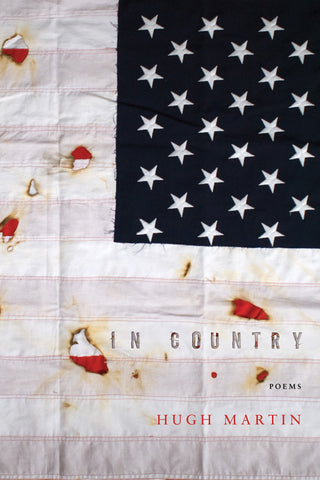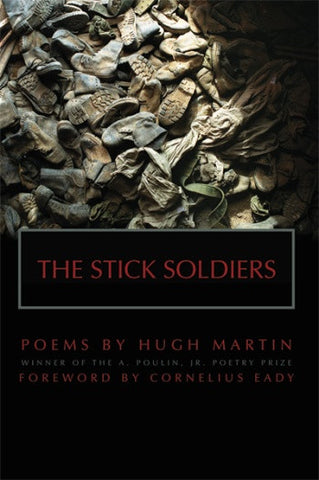
About This Title
Hugh Martin’s second full-length poetry collection moves within and among history to broaden and complicate our understanding of war. These poems push beyond tidy generalizations and easy moralizing as they explore the complex, often tense relationships between U.S. soldiers and Iraqi civilians. The speaker journeys through training to deployment and back again, returning home to reflect on the soldiers and civilians—both memories and ghosts—left behind. Filled with recollected dialogue and true-to-life encounters, these poems question, deconstruct, examine, and reintegrate the myths and realities of service.
From "Iraq Good"
The small boy smiles, kicks roundhouses
across the potholed road, says, Van Damme
good? & I say, Yes, Van Damme good.
The boy punches the warm air while we,
on the street for hours, outside
the Sadiyah police compound walled
with Hescos higher than our gunners’
heads, pace circles around the trucks.
Two other boys, maybe nine or ten,
chop each other, gently,
with knife-hands, & one turns, says,
No good Saddam, Saddam
very no, & he points to his sandal’s heel,
Saddam no. & so
it went: Bruce Lee good, Zamzam good,
falafel good, even
Michael Jackson good, even Bush good, even America very good. We stood,
speaking on ground where written words
were first made, where Enheduanna
wrote her poems, blunt reed
on wet clay, the clay that made the walls
those children slept behind at night,
that filled the Hescos behind our backs
to protect from blasts & bullets.
Praise for In Country
"This is a poetry of small detail and large design. At one level, the guns, wasted terrains, and grinding dailiness of violence surprise and engage. The meticulous craft of detail allows the reader to become both witness and participant. But at a deeper level, the true power and presence of this book, from poem to poem, lies in its offering of the unimaginable to imagination. These are certainly war poems, providing depth and texture to the category. But they are also proof of the hard-won accord that can exist between experience and language, which here lends a memorable force to so many of these poems." —Eavan Boland
"With war, the imagination is drawn to spectacle, which these poems are not—and in that way, they help us to understand the unspectacular horror of the regular. ‘There was never that black bowling ball, a burning fuse / waving its tail,’ is clear enough, but followed with the more devastating extension of experience, ‘No bombs but / in things.’ These clearly important poems disabuse us from thinking of war as we may have—as games, as movies, as acts of what we are convinced is the imagination, having played war as kids. These poems change the reader by offering drama where it is least expected. They are not imagined." —Alberto Ríos
“In Country is an astonishing tapestry. I know Randall Jarrell would have loved to review this book, detailing the half-dozen obvious masterpieces—insisting that human memory elevated by the most talented writers has something of the sacraments in it. Human, brilliant, this is truly yet another important book by Hugh Martin.” —Norman Dubie
Publication Date: November 6, 2018
ISBN: 978-1-942683-70-4
© BOA Editions, Ltd. 2018


